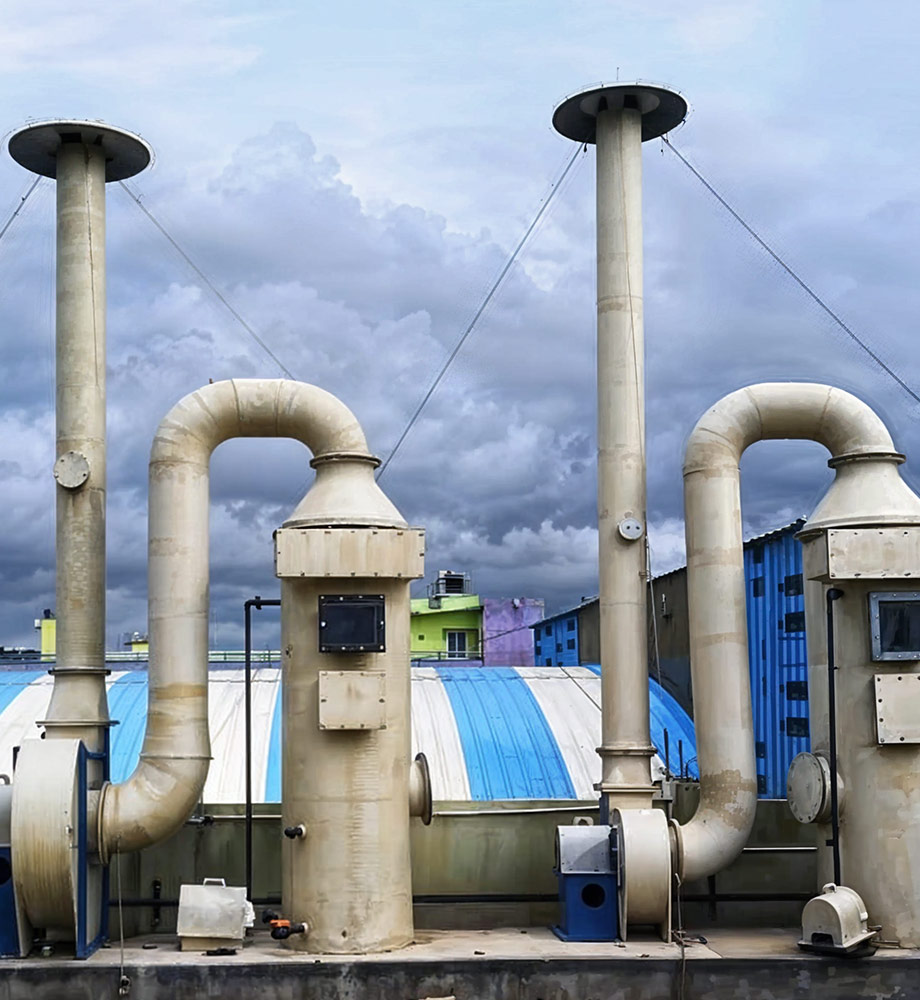Key Features
- Corrosion-Resistant Hoods and Ducts: All fumes-contacting parts are FRP or FRP-lined, ensuring no deterioration from strong acids, alkalies, or solvents.
- Custom Enclosures: Systems are built to customer specs; hoods can be designed for tanks, reactors, benches, or equipment cabinets. Shapes and sizes vary (e.g. canopy hoods, snorkels, pick-up hoods).
- Integrated Fans and Dampers: Often paired with FRP centrifugal or axial blowers and dampers for full-system performance. All parts are matched for high resistance.
- Modular Assembly: Components (duct sections, bends, hoods) can be fitted together on site with leak-proof flanges or clamps.
Benefits
- Effective Fume Capture: Precisely positioned FRP hoods ensure no escape of hazardous gases, protecting personnel and equipment.
- Reduced Maintenance: Fiberglass hoods do not corrode or rust, so they avoid common problems of metal hoods (holes, leaks).
- Lightweight and Portable: FRP units weigh much less than steel, easing installation overhead. They can be relocated or reconfigured if processes change.
- Weather and UV Stability: Outdoor extraction hoods withstand sun exposure and weather, maintaining a clean appearance without peeling paint.
Applications
FRP fume extraction systems are used extensively in chemical processing, laboratories, pharmaceutical manufacturing, paint booths, plating shops, and any setting with corrosive or toxic vapors. Typical uses include capturing acid fumes over etching tanks, solvent vapors from reaction vessels, organic gas emissions in organics synthesis, and general ventilation in hazardous areas.
Technical Specifications
Systems are designed per airflow requirements. Specifications include capture velocity (e.g. 50-100 fpm at the hood face), duct diameters, and fan capacity. FRP ductwork is sized to minimize pressure drop. Blowers may be rated to handle the specific fumes (see Blowers & Fans section).
Unique Selling Points
The main USP is the fully FRP construction. Every part (hood, duct, fan housing, damper) resists the full gamut of industrial chemicals. This means the entire extraction train has the same long-lived durability. Additional USPs include the ability to integrate directly with FRP scrubbers or filters (all materials match), and turnkey solutions that come ready for installation. In contrast to generic metal vent hoods, an FRP extraction system delivers complete chemical immunity and regulatory compliance with virtually zero corrosion upkeep.

